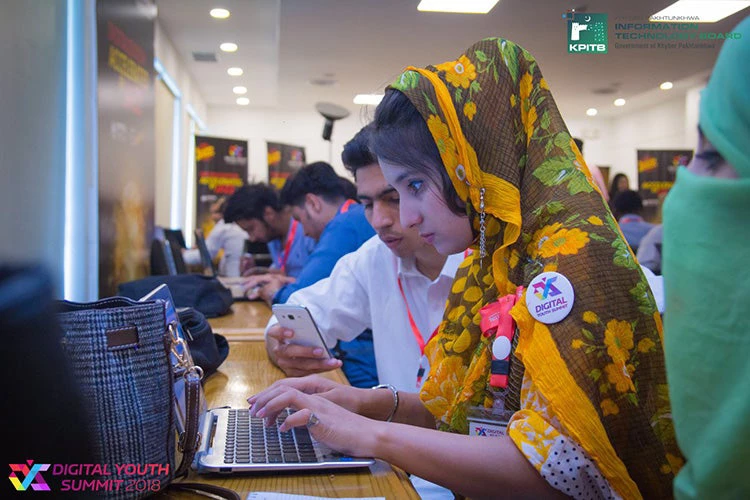Giving youth the education and skills they need remains one of the world’s most pressing challenges. Globally, more than 260 million children and youth are not in school. Worse, nearly 60 percent of primary school children in developing countries fail to achieve minimum proficiency in learning. Adding a new layer of complexity to this challenge, technology is quickly transforming the skills required to compete for jobs and access economic opportunities—as highlighted in the World Bank’s forthcoming 2019 World Development Report on the changing nature of work. And for regions with a huge youth population such as South Asia and Sub-Saharan Africa, it’s time to put digital skills training front and center.
International Youth day is August 12. This year’s theme is Safe Spaces for Youth and the contributions they make towards freedom of expression, mutual respect and constructive dialogue. Among these spaces are civic spaces, public spaces, digital spaces and physical spaces. Personally, I am very interested in the digital spaces concept, not because I am a digital engagement specialist here at the World Bank, but because I think the future of tomorrow’s work is going to be very aligned with technology.
In fact, over the last few years, we’ve seen the emergence of many new initiatives looking to help young people build technology skills and connect to the global digital economy.
In 2017, the World Bank Group launched XL Africa, a new program to support Africa’s top digital entrepreneurs. Out of over 900 applications received for this program, 20 startups were selected and received early stage capital between $250,000 and $1.5 million. Out of this project, companies like Pesabazaar, Edgepoint Digital and Asoko Insight, were born and are now providing fintech, health insurance and data and services for many people. Another company facilitating the creation of jobs through online work is Andela, which has trained 20,000 software programmers across Africa.
In Pakistan’s Khyber Pakhtunkgwa Province, the World Bank has been hosting the Digital Youth Summit every year since 2014. The objective of the Summit is to educate and inspire the next generation of digital innovators in this conflict-affected region, where 50% of people are 30 years or younger. Now in its fifth year running, the program aims to create 75,000 jobs in the tech sector, in alignment with the country’s digital strategy.
Earlier this year, in partnership with the government of Algeria, the World Bank Group organized the Youth, Technology and Finance conference in the Middles East and North Africa region as a way to highlight innovations leveraging disruptive technology such as souq.com and Careem, and discuss ways of using the region’s creative youth population as an engine of growth.
In Jamaica, where youth unemployment is about 30%, a World-Bank supported project provided training to 15,000 young for jobs in the digital and animation industries.
As we are finalizing the next World Development Report, we are inviting young people to share their thoughts with us: How are governments, cities, firms and people responding to technology and the future of work? You can submit your examples right here for a chance to win $5,000!



Join the Conversation